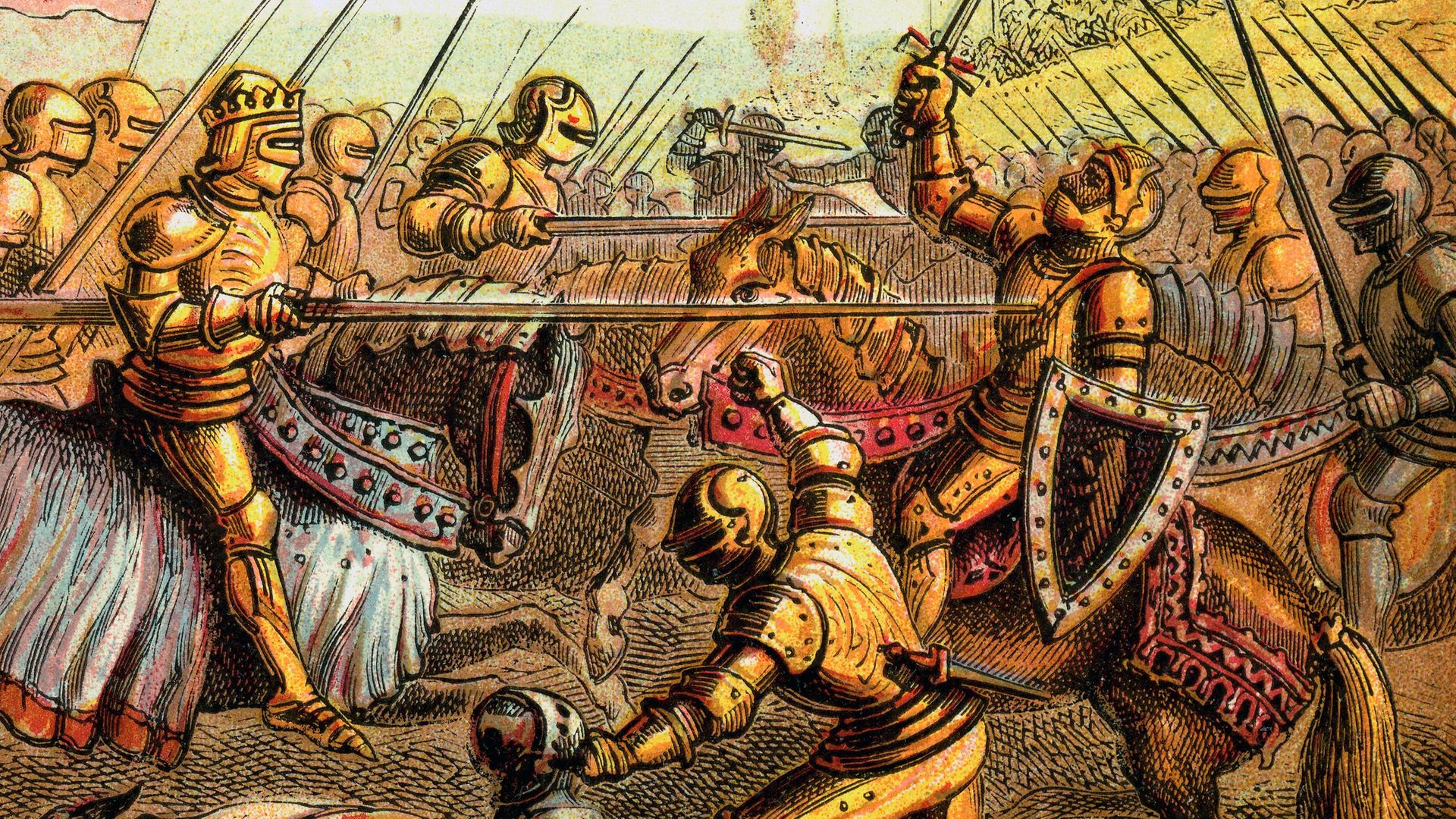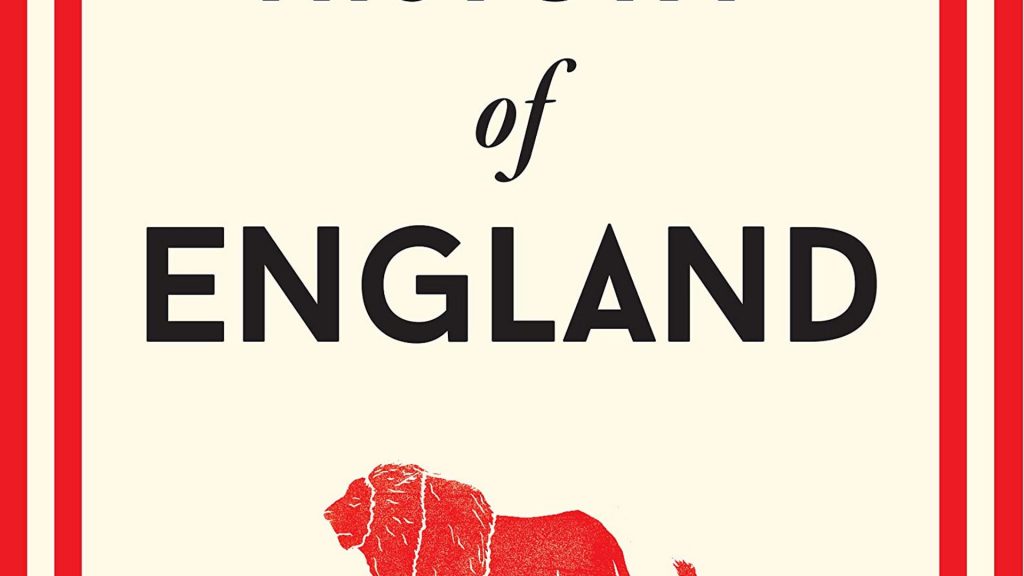
CHARLIE CONNELLY on a new book covering 2,000 years of English history at breakneck speed, right up to a gloomy ending in the present day…but with some cause for cautious optimism.
English politicians have always displayed a particular interest in history. Maybe it’s a narcissistic thing, feeling that by stepping up to public office they are themselves taking their rightful place in the narrative flow of our national story.
Or maybe they think that with political office comes control over the narrative of our past. Michael Gove certainly thought so when, as secretary of state for education, he decided that the history curriculum wasn’t hailing Britain as the World’s Greatest Nation Ever, Woo! enough and set about changing it.
He called in a bunch of eminent historians like Simon Schama and Richard Evans for advice, but when they didn’t meet his standards for hailing Britain as the World’s Greatest Nation Ever, Woo! he apparently ignored them. Because he knew best. About everything. I mean, you don’t take it upon yourself to write a foreword to the Bible without knowing best. Such was the uproar about his proposed curriculum that he was later forced to backtrack on elements of it.
This grappling for control of the historical narrative has become even more febrile since the Brexit vote in 2016, most recently in the brouhaha arising from the toppling of the statue of slaver Edward Colston in Bristol during demonstrations in support of Black Lives Matter. Suddenly statues became very important indeed, not least because their clanging faceplants indicated that some people didn’t think Britain was necessarily the World’s Greatest Nation Ever, Woo!, or at least not all the time.
In some towns and cities gangs of blokes lined up around statues, feet apart and hands clasped behind their backs in pseudo-military poses they’d seen in films. They were, they said, protecting our history. In Nuneaton a group of men including at least one British military veteran even surrounded a statue of George Eliot. “I heard about the protest and obviously what has been going on elsewhere, I’m here purely to protect our history,” said the veteran. “I’m not against the protest whatsoever, everyone has the right to do it, I’m purely here to protect our history.”
He wasn’t alone in being motivated purely to protect something called Our History. Other people drawn on to the streets to guard their local plinth-borne notables expressed concern that by taking an angle grinder to the ankles of a frock-coated burgher, protestors were attempting to ‘erase’ history.
Never mind that Edward Colston’s name and story appeared more in the national consciousness in the week of his toppling than it had probably in the previous century, for some, the removal of a bronze effigy erected 174 years after his death was not just an affront to history itself but an outright obliteration. ‘Our history’, whatever that might mean, had become another battleground for this nation of the bitterly divided.
It takes a brave writer to tackle the history of England at the best of times, but to publish one now seems a particularly courageous, nay, possibly ill-advised thing to do.
James Hawes is a novelist who emerged at the height of the BritLit flowering of the mid-1990s with A White Merc With Fins. Five further novels later he turned to non-fiction with 2018’s excellent The Shortest History of Germany, which reached number two in the Sunday Times’ chart to become an unlikely Brexit Britain bestseller.
Now he’s back with The Shortest History of England, a breakneck, 270-page rampage through the story of the United Kingdom’s largest component part with the starting pistol going off at Julius Caesar and the finish line straddled by the premiership of Boris Johnson.
One of the biggest problems I have with the people who complain about history being ‘erased’ is the implication that history is a one-lane, one-way concept, a locked-in, monolithic narrative in which there is no nuance, no discussion and from which there is no deviance. One of the joys of history is its many layers, the intertwining narratives, the differing and opposing interpretations of events major and minor.
History is always on the move and hard to pin down beyond the basic pegs of dates, names and places. History is about shifting consensuses: the context in which the Colston statue went up in the first place is just as valid as the context in which it came down. Both actions and their motivations are part of a historical narrative and nothing, literally nothing, is being erased.
The Shortest History of England isn’t the definitive history of a nation, it doesn’t claim to be and it is not intended to be. Writing the definitive history of a nation is impossible, but for some the closest version we have is the version in which Britain is the World’s Greatest Nation Ever, Woo! and anything straying from that is not only wrong but unpatriotic.
James Hawes doesn’t buy into the narrative that Britain is the World’s Greatest Nation Ever, Woo!, yet after reading his Shortest History of England I came away feeling an enhanced pride in my Englishness. It also left me feeling angry at the mistakes, messes and injustices that litter the broad sweep of English history, but that’s what makes for a rounded view of one’s nation, forged in self-examination rather than the fostering of a forced, false sense of superiority through facile comparison and outright denial.

Fitting nearly 2,000 years of history into 270 pages is quite a challenge and this is not a book to read for rumination or nuance. Academic historians will roll their eyes at the absence of footnotes, while the quoted sources range from the Anglo-Saxon Chronicle to Dan Snow. It is, by definition, a pacy read aimed squarely at a non-academic audience but that doesn’t mean it isn’t a thorough and absorbing investigation of the English story.
Of course Hawes tackles the story from a particular political viewpoint. Avoiding that would be a.) impossible, and b.) really stupefyingly dull. There are regular turns of phrase whose resonances dong like the hollow bronze head of statue hitting pavement.
Of Henry VIII’s appeal to the Vatican for an annulment of his heirless marriage to Catherine of Aragon, for example, Hawes writes, “Henry blustered and threatened to invade Rome himself, but 15 years of aggression and duplicity meant that at the vital moment England had no ally and hence no leverage in Europe”.
He writes of how after the Second World War Churchill wanted a referendum to decide whether the wartime national government should be extended while Labour leader Clement Attlee, who had been deputy prime minister during the conflict, preferred a general election. Hawes gives Attlee’s quote, “I could not consent to the introduction into our national life of a device so alien to all our traditions as the referendum”, its own standalone text box, the literary equivalent of turning to camera and raising an eyebrow. Attlee got his election, and won.
The key theme that runs through Hawes’ account is division. The north-south divide, for example, which I assumed was a fairly recent construct, possibly with origins in the industrial revolution, turns out to be as old as the loosest definition of England. The River Trent has effectively been the border between two distinct groups of people since before the Norman Conquest.
From the start, people from the northern territories of what’s now England spoke in such a different manner to those in the south they couldn’t understand each other. After the Wars of the Roses the southern way of speaking was co-opted to represent learning and intelligence and in 1569 a guide to good writing was published in London that advised writers not to use “the termes of Northern-men… Nor in effect any speech beyond the river of Trent… Ye shall therefore take the usual speech of the Court, and that of London and the shires lying about London”.
It’s this division, growing ever more entrenched as the centuries pass, that Hawes defines as England’s greatest flaw and hindrance. It becomes entwined with class divides, most notably in the aftermath of the Enclosure Acts from the 16th century which saw the wealthy exclude the rest from the best land for farming and subsistence, the division really picking up speed with the industrial revolution and affirming England as a nation permanently struggling to be a truly unified people.
We hear few voices of the people in this story. Perhaps inevitably this is history from the top down, the best way to understand how we got to where we are today being in the people of influence who got us here. Indeed, the first 100 pages or so occasionally become a blur of names of kings, queens, dukes and earls as we try and keep Hawes in sight while he charges forward through the centuries.
Once we reach the Wars of the Roses, and the historical sources widen in their scope, Hawes can make his case in a slightly more nuanced manner.
Perhaps his greatest skill is in how he brings the story right up to date, able to step back from the current madness with admirable clarity to separate wood and trees in a way most of us would find impossible. If today’s news is tomorrow’s chip wrapper it couldn’t have a more discerning greasy-fingered bin diver than James Hawes.
It’s an odd feeling reading in a history book about events still unfolding, but Hawes manages to connect them to threads stretching back centuries. There is, after all, nothing more up to date than history.
The Shortest History of England builds to a bit of a gloomy ending in which we find ourselves living through the legacy of our ancestors. “What next?” he asks. “The new rulers of England will not change course… The UK will be buried and the English will emerge, blinking, from their long submersion within the empires of their elites, to find themselves alone in the big, bad world and as divided as ever.”
Hawes’ book is of course a narrative, not the narrative of English history. The Shortest History of England makes for persuasive reading, however, and frustrating though it is that the country has been divided for so long despite, as Hawes shows, many opportunities to unite the English people, the reader is left with a cautious optimism, even an enhanced pride, especially in those people outside the elites, largely voiceless but keeping England running in the face of disdain, greed and mismanagement by self-appointed elites.
It is those elites who came up with the notion that Britain is the World’s Greatest Nation Ever, Woo! and it is them who, with a direct line from the Enclosure Acts to a “world-beating” track and trace system, continue to prevent that notion from ever coming remotely true.
The Shortest History of England by James Hawes is published by Old Street, price £12.99










